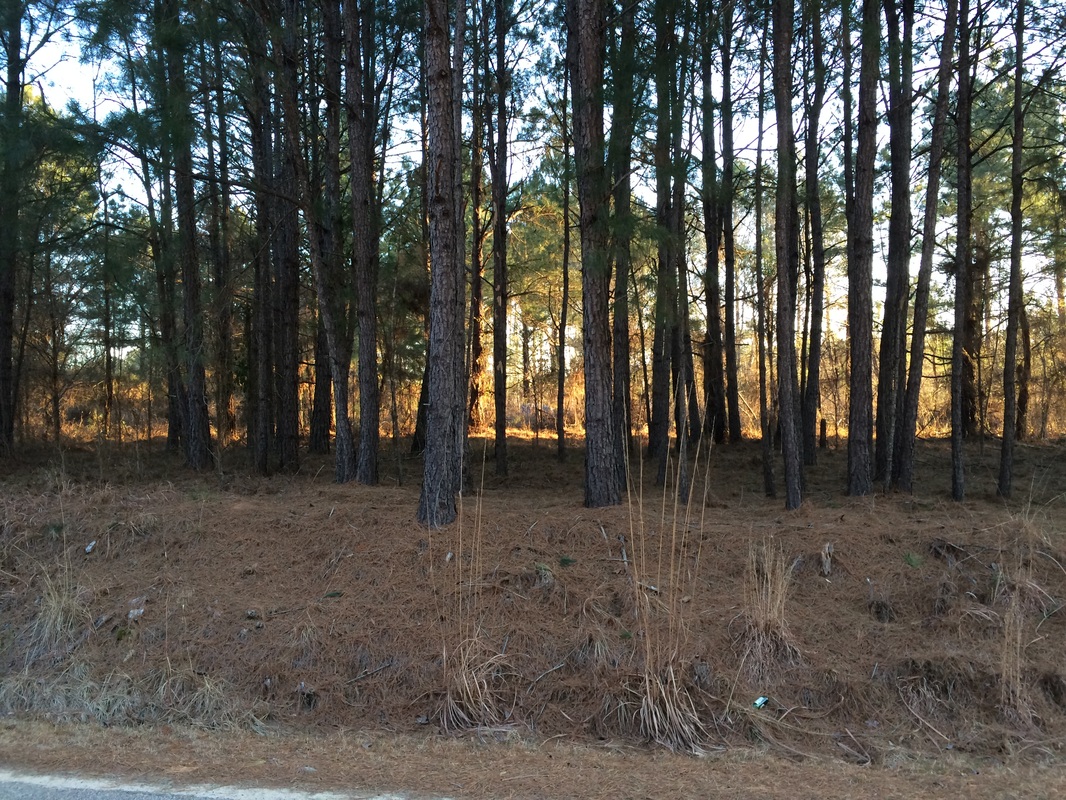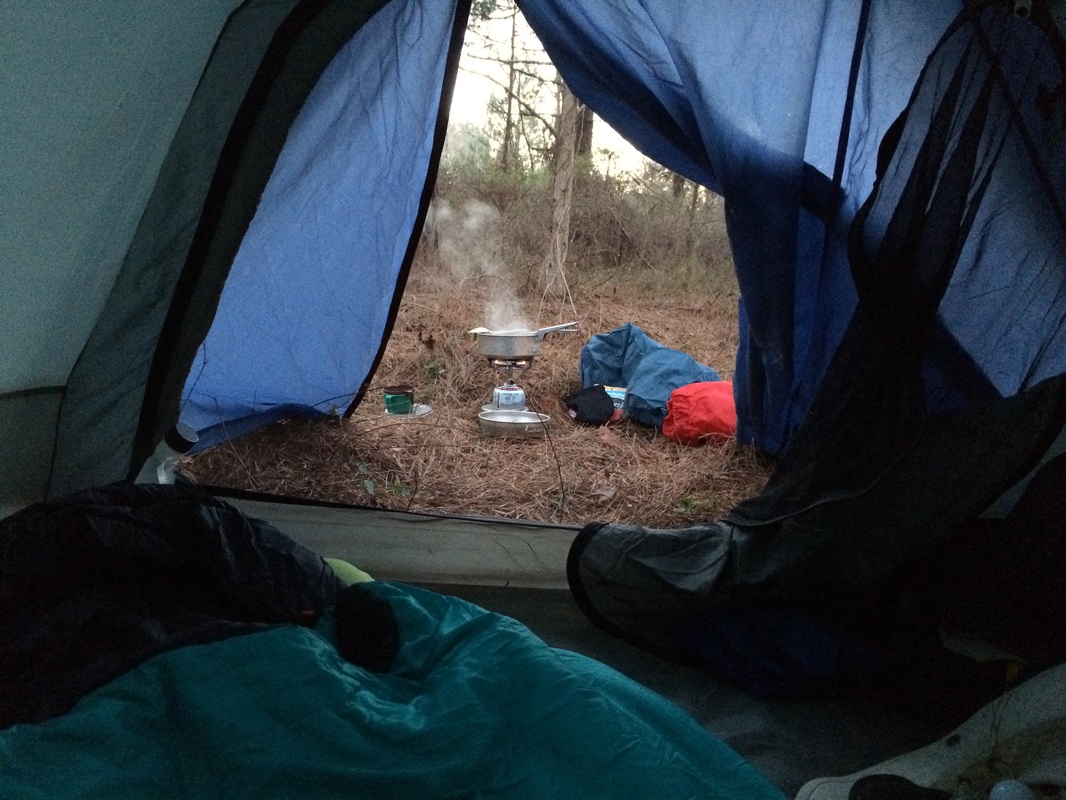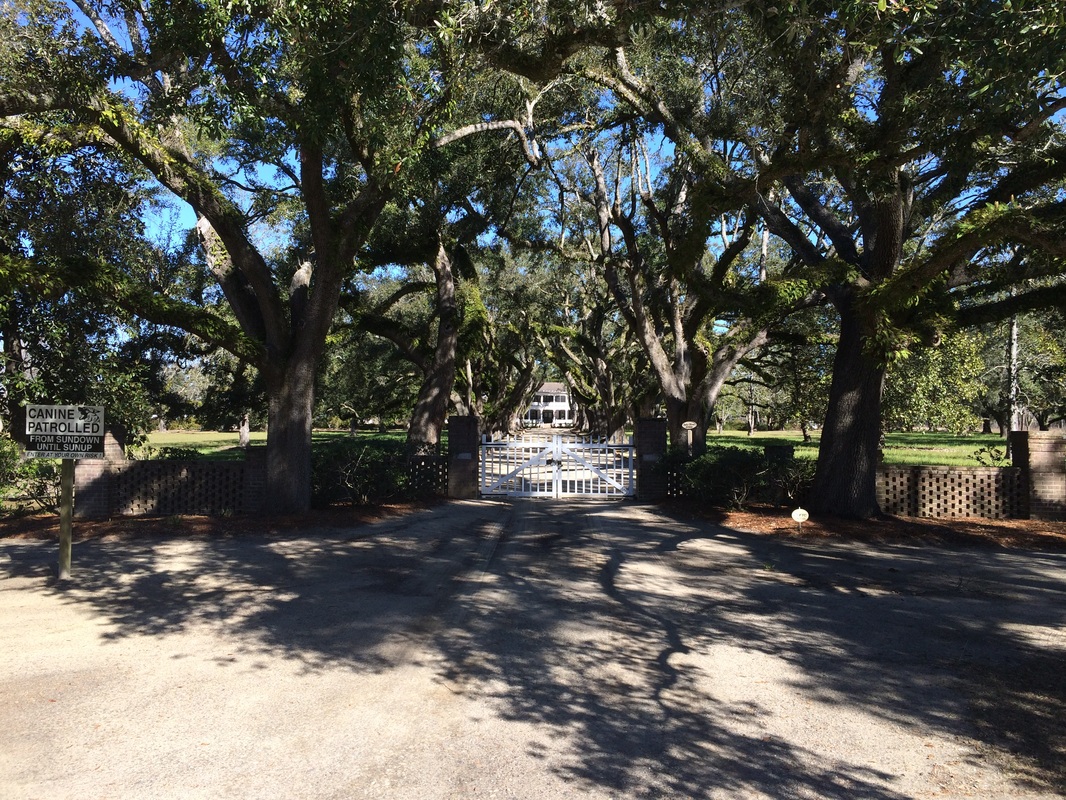One of my many friends in the small burg of McClellanville, north of Charleston, quoted another friend, speaking of Lawson and his unpleasant death at the hands of the Tuscarora a decade after his journey. "He was a land developer," my friend quoted his friend. "And he got what they all deserve."
And to be sure, at the base -- literally -- of Lawson's journey was land. What kind of land was Carolina? Who lived there? Who owned it? How could colonists get it? How and where could you cross it? What were the obstacles? What grew there now, and what would grow there under ideal (read: English) stewardship?
That's nothing like an exaggeration. Lawson describes one area he sees as "curious dry Marshes and Savanna's adjoining to it, and would prove an excellent thriving Range for Cattle and Hogs, provided the English were seated upon it." He admires the Indians, and he's often very critical of the way they're treated, but Lawson says stuff like this a million times, and I quote it just to remind you: yes, Lawson was interested in the science and the anthropology and the botany and all the other wonderful stuff on his wonderful adventure, but he was also interested, like every single colonist to North America, in land, and in getting it away from its current inhabitants. Land acquisition was what was going on, and however much we admire Lawson's admiration for the Indians and his curious and questing spirit, he was involved in the same continental land-grab everyone else was, and he could see as well as anyone else how that worked out for the current occupants. "These Sewees have been formerly a large Nation," he says of his first Indian assistants, "though now very much decreas'd, since the English have seated their Land, and all other Nations of Indians are observ'd to partake of the same Fate, where Europeans come."
That was kind of new for the Indians. Not that they didn't have boundaries and territories and markers and all that, but people -- especially people of the same group -- were expected to move about the land, and the idea that one would not have been allowed to cross and seek shelter would have bordered on the absurd. "This night we got to one Scipio's Hutt, a famous Hunter," Lawson says somewhere among the Santee Indians. "There was no Body at Home; but ... we made our selves welcome to what his Cabin afforded, (which is a Thing common) the Indians allowing it practicable to the English Traders, to take out of their Houses what they need in their Absence, in Lieu where of they most commonly leave some small Gratuity of Tobacco, Paint, Beads. &c."
| I brought my own tent and I took nothing but a night's sleep, so I left no beads. Had I thought of it I'd have left a little Lawson Trek pin on the ground, and I now regret I did not. But I was utterly unprepared for the shock -- "Why, the very idea!" -- I engendered by admitting I had lain down in the brush to sleep without the expressed written consent of the current landholder. Now I shouldn't have been surprised. In a nation of stand-your-ground laws and get-off-my-land anticommunity spirit, the starting position for crossing land tends to be that if you don't have some kind of expressed right, back off. Compare this to the Indian traditions Lawson encountered and the Right to Roam traditions in Europe, where (outside of things like yards and gardens and land used for agriculture) you kind of just generally can go where you need to, and you're expected to be responsible about it. |
Again: laying down where I found myself when energy and sunlight diminished was a longstanding goal of mine. I can remember as long ago as early childhood, when during family car rides I would imagine walking instead of driving, and the idea of setting out cross-country first began to attract me. I thought about the obvious utility for camp shelter of those little clumps of trees near highway exit ramps; I looked at the borders of trees along roads, separating farmed fields from the highway and thought the same. To me, walking along until it was time to rest, and then resting until it was time to walk again, seemed exciting and humane and fundamental.
And I know that those childish thoughts need to coexist with individual property rights. And a cool study shows that even people who post their property will allow people to hunt it almost half the time; they just want you to ask permission. Which is totally reasonable. And were I going to make a common practice of just laying down where I found myself I would expect, sooner or later, to offend the actual owners of the land on which I lay, not another landowner on their behalf. And part of what I'm doing as the Lawson Trek makes its way across the land is finding out not just what it feels like to walk the earth (it feels great!) but to see what it feels like for others when we show up, like Lawson did, and need to eat, or sleep -- or park a car or use a restroom or get a ride to Pack's Landing.
So far we've almost never been denied permission to walk, rest, or sleep, but it's a complicated world. Some churches have opened their chapels for us to sleep in; others have denied our requests to camp on a corner of their land. Most people meeting us seem cheerful, and when they learn of our project are delighted to share
| stories, offer rides and food, and in general help in any way they can. And a good many seem to remember -- this land? This land was taken from its previous inhabitants largely by force, and it was developed largely by the labor of slaves. Certainly we have rights to it now, but we also have responsibilities -- to the planet, the environment, our communities, and perhaps to wayfarers, seeking shelter in the darkness and rest along the road. I'm wondering what others think, and I'll hope to get some responses to this piece. |



 RSS Feed
RSS Feed